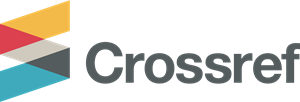PEMBERDAYAAN ANAK PUTUS SEKOLAH DALAM PEMANFAATAN LIMBAH KULIT KOPI SEBAGAI PAKAN RUMINANSIA
(1) Program Studi Pendidikan Teknologi Pertanian Fakultas Teknik Universitas Negeri Makassar
(2) Program Studi Pendidikan Teknologi Pertanian Fakultas Teknik Universitas Negeri Makassar
(3) Program Studi Pendidikan Teknologi Pertanian Fakultas Teknik Universitas Negeri Makassar
(4) Program Studi Pendidikan Teknologi Pertanian Fakultas Teknik Universitas Negeri Makassar
(*) Corresponding Author
DOI: https://doi.org/10.26858/jptp.v4i2.6608
Abstract
Keywords
Full Text:
PDFReferences
BPS Kabupaten Pinrang. 2015. Sulawesi Selatan Dalam Angka.
Ditjenbun [Direktorat jenderal Perkebunan]. 2006. Pemanfaatan kulit buah kakao dan kopi pada pertanaman kakao dan kopi. PT. Perkebunan.
Mawardi. 2007. Peranan Sosial Capital dalam Pemberdayaan Masyarakat. Jurnal Pengembangan Masyarakat. Vol 3. No 2.
Mayasari, N. 2009. Pengaruh Penambahan Kulit Buah Kopi Robusta (Coffea canephora) Produk Fermentasi Jamur Tiram Putih (Pleurotus ostreatus) Dalam Ransum Terhadap Konsentrasi VFA Dan NH3 (In Vitro). Bandung: KPP Ilmu Hayati LPPM ITB.
Murni, dkk. (2008). Teknologi Pemanfaatan Limbah Untuk Pakan. Jambi: Laboratorium MakananTernak Fakultas Peternakan Universitas Jambi.
Novaiza, A., dkk. 2011. Pemanfaatan Amoniasi Urea Kulit Daging Buah Kopi pada Pakan Domba Terhadap Karkas Domba Jantan Lepas Sapih. J. Peternakan Integratif, vol. 1 (1): 11-18.
Simanihuruk, Kiston dan J. Sirait. 2010. Silase Kulit Buah Kopi Sebagai Pakan Dasar pada Kambing Boerka Sedang Tumbuh. Disampaikan pada Seminar Nasional Teknologi Peternakan dan Veteriner 2010.
Widyotomo, S. 2013. Potensi Teknologi Diversifikasi Limbah Kopi Menjadi Produk Bermutu danBernilai Tambah. Pusat Penelitian Kopi dan Kakao Indonesia, vol. 1 (1): 63-80.
Wulandari. A. W., 2013. Pemanfaatan Limbah Kulit Kopi sebagai Pakan Sapi Potong di Kabupaten Rejang Lebong. Panduan Ekspose dan Kumpulan Abstrak Seminar Nasional Inovasi Ramah Lingkungan, Badan Litbang Pertanian Kementerian Pertanian.
Article Metrics
Abstract view : 393 times | PDF view : 218 timesRefbacks
- There are currently no refbacks.
Copyright (c) 2018 Jurnal Pendidikan Teknologi Pertanian
Publisher Address :
Department of Agricultural Technology Education, Faculty of Engineering, Universitas Negeri Makassar
Kampus UNM Parang Tambung, Jalan Daeng Tata Raya, Makassar, South Sulawesi, Indonesia 90224
Email: redaksijurnalptp@gmail.com
Website: http://ojs.unm.ac.id/ptp
INDEXED BY :
This journal is published under the terms of Creative Commons Attribution 4.0 International License.











